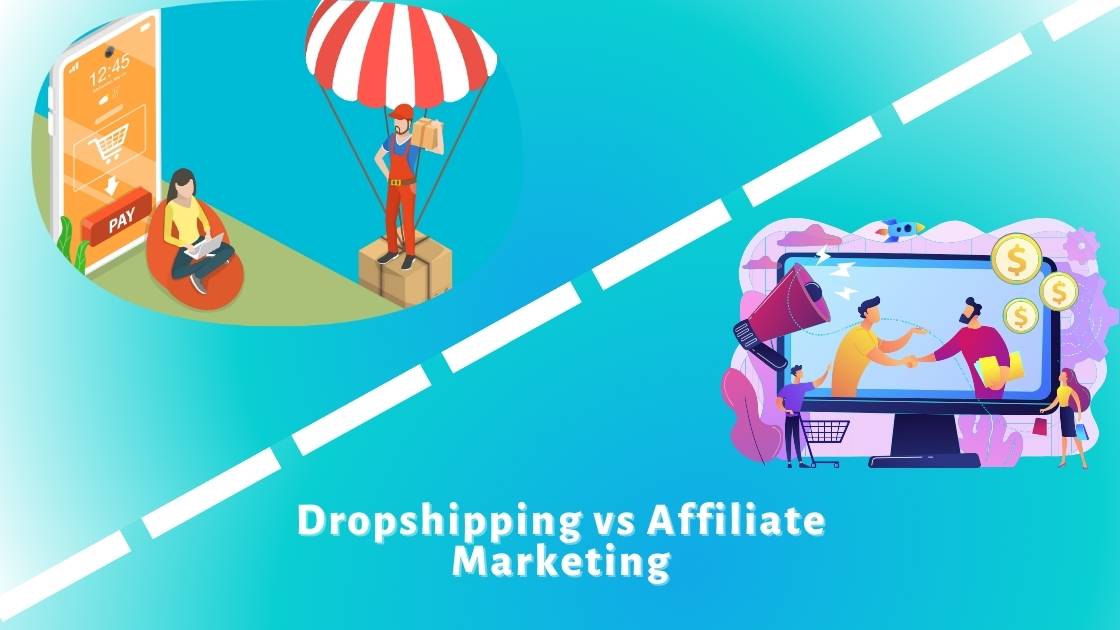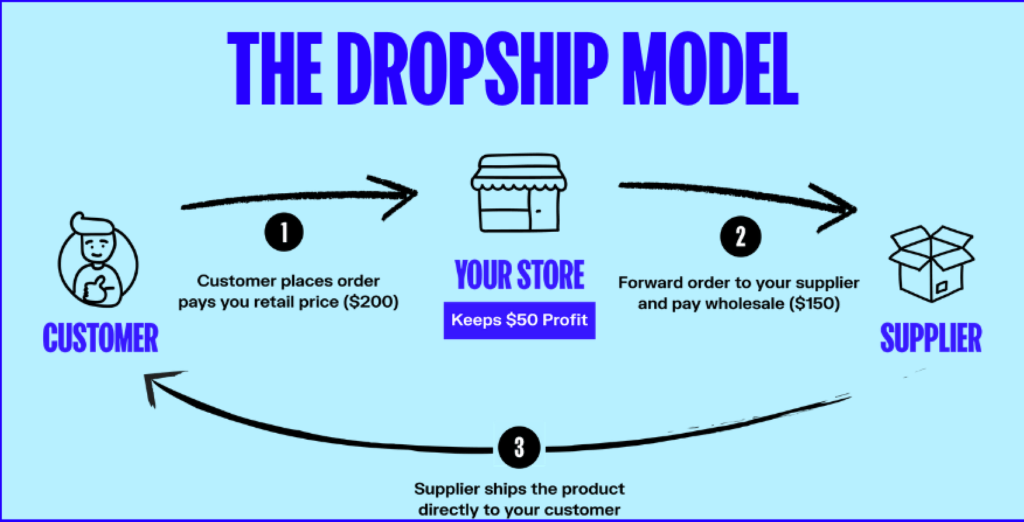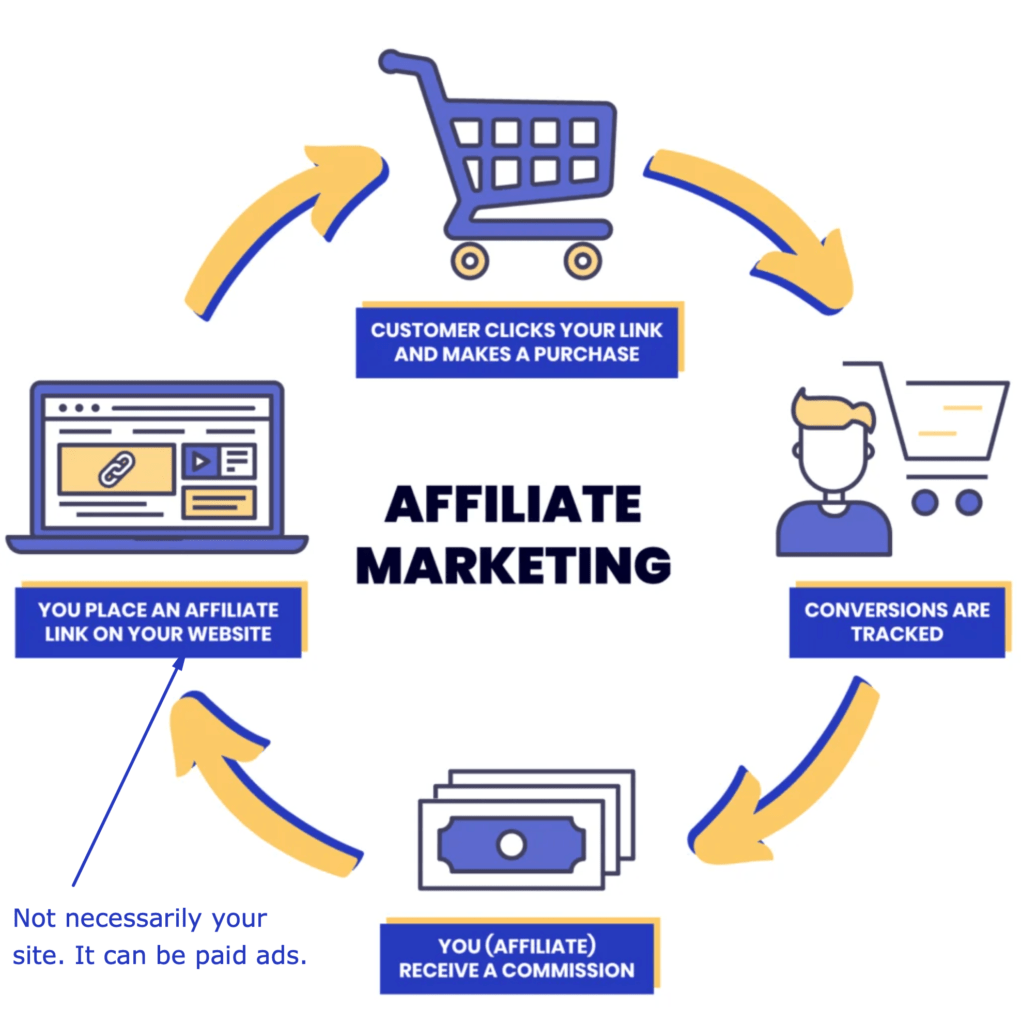

In recent years, online businesses have become a booming industry, and two of the most popular business models within this sector are dropshipping and affiliate marketing.
Both models offer the potential for entrepreneurs to start a successful online business without the need for significant capital investment.
But which one is better suited for your needs?
In this article, we’ll explore the differences between dropshipping and affiliate marketing, the pros and cons of each, and which model may be the right choice for you.
- Definition of Dropshipping
- Definition of Affiliate Marketing
- Dropshipping vs Affiliate Marketing: Pros and Cons
- Comparison between Dropshipping and Affiliate Marketing
- Startup and Operational Costs
- Ownership and Control
- Profit Margins
- Marketing and Advertising
- Customer Service and Shipping
- Which is Better: Dropshipping or Affiliate Marketing?
As online shopping continues to grow, there are more opportunities than ever for entrepreneurs to build successful businesses without the need for significant investment.
Two of the most popular business models within online businesses are dropshipping and affiliate marketing.
While both models have similarities, they also have some significant differences.
Personally, I have many years of experience in the AdTech (Advertising Technology) industry, which has meant me being and working very closely with both areas.
I have clients who have dropshipping stores and buy traffic from us, as well as Affiliates who promote products/services through their own Pre-Landers and work with paid media buying traffic from our network.
In this article, we’ll explore the definitions of both dropshipping and affiliate marketing, their respective pros and cons, and which one might be the best choice for your business in 2023.
Definition of Dropshipping
Dropshipping is a business model that allows entrepreneurs to sell products online without having to keep inventory in stock.
Instead, the entrepreneur purchases products from a supplier who then ships the products directly to the customer.
In a dropshipping business, the entrepreneur sets up an online store and markets the products they wish to sell.
When a customer purchases a product, the entrepreneur orders the product from the supplier, who then ships the product directly to the customer.

Definition of Affiliate Marketing
Affiliate marketing is a business model that allows entrepreneurs to promote other companies’ products and earn a commission on each sale made through their referral.
As an affiliate marketer, you promote a company’s products on your website or social media platforms, and when someone clicks on your referral link and makes a purchase, you earn a commission.
To be precise, you will earn a commission for a certain action done by the user.
As an example, it can be a registration, an installation, a form submission (a.k.a. lead generation), a trial of a software, a purchase…
Affiliate marketing is a popular business model because it allows entrepreneurs to make money without having to create or own any products.
If you are interested in starting an affiliate marketing business, check out my complete guide about how to start affiliate marketing from scratch in 2023.

Dropshipping vs Affiliate Marketing: Pros and Cons
| Dropshipping Pros | Dropshipping Cons |
|---|---|
| – Low startup costs – No need to keep inventory in stock – Potential for high-profit margins | – High competition – No control over the supply chain – Potential issues for shipment and product quality |
| Affiliate Marketing Pros | Affiliate Marketing Cons |
|---|---|
| – No need to own products or keep inventory in stock – Flexibility to promote a wide range of products | – Commission rates may be low for some products (recommended to avoid re-brokered products) – No control over the product or customer service – Potential for competition (but less than dropshipping for the same product) |
Comparison between Dropshipping and Affiliate Marketing
Startup and Operational Costs
One of the most significant advantages of both dropshipping and affiliate marketing is the low startup costs required.
With dropshipping, the entrepreneur needs to set up an online store, which can be done quickly and inexpensively using platforms such as Shopify.
With affiliate marketing, the entrepreneur needs to set up a website, social media presence, or landing page, which can be done using platforms such as Elementor.
However, operational costs can be higher depending on the business model we opt for.
For example, starting a dropshipping store should not be the goal, only one of the very first steps.
Once the store is ready, we should start with advertising campaigns to attract potential customers and thus test the products.
Advertising will have a cost, which will depend on your budget and how fast we want to test.
There are many dropshipping gurus who recommend starting with 5$ a day campaigns for those on a low budget.
If you have more budget you can decide on $20, $50, or even more.
Something very similar happens with affiliate marketing.
If you decide to work affiliate marketing with the paid media strategy, you will have to plan a budget for the purchase of traffic.
However, there are those who opt for more long-term strategies and decide to start with organic traffic, either through positioning in Google, or traffic from social networks.
| Dropshipping/Affiliate marketing with organic traffic | Dropshipping/Affiliate marketing with Paid traffic |
|---|---|
| – Inexpensive – Slow getting traffic – More focus on Backlinking, SEO, Google Search Console, Google Analytics… | – Much Bigger Budget – Immediate traffic to the Landing Page – More focus on the advertising platform you buy traffic from, the tracking system you use, SEM… |
Ownership and Control
One significant difference between dropshipping and affiliate marketing is the level of control the entrepreneur has over the products they promote.
With dropshipping, the entrepreneur has control over the products they sell and can choose the suppliers they work with.
They can also brand their products and create a unique customer experience.
With affiliate marketing, the entrepreneur has no control over the product or customer service, as they are promoting someone else’s products.
Profit Margins
In terms of profit margins, both dropshipping and affiliate marketing have the potential to be highly profitable.
With dropshipping, the entrepreneur can set their own prices and make a profit on the difference between the wholesale price and the retail price.
With affiliate marketing, the commission rates can vary widely, but some products offer high commission rates that can be very lucrative.
Marketing and Advertising
Marketing and advertising are essential components of both dropshipping and affiliate marketing.
With dropshipping, the entrepreneur is responsible for marketing their products and driving traffic to their online store.
With affiliate marketing, the entrepreneur is responsible for promoting the products they choose to promote and driving traffic to their referral links.
As I mentioned before, this can be done using social media, paid advertising, or search engine optimization (SEO, aka organic traffic).
Customer Service and Shipping
One of the major differences between dropshipping and affiliate marketing is the level of involvement in customer service and shipping.
With dropshipping, the entrepreneur is responsible for customer service and shipping, which can be time-consuming and stressful.
With affiliate marketing, the product owner is responsible for customer service and shipping, leaving the entrepreneur free to focus on promotion, marketing and optimization.
Which is Better: Dropshipping or Affiliate Marketing?
The answer to this question depends on several factors, including your personal preferences, skills, and resources. Both dropshipping and affiliate marketing have the potential to be highly profitable, but they require different skill sets and approaches.
If you have a passion for creating your own products and building a brand, dropshipping may be the better option. On the other hand, if you prefer to promote products and don’t want to deal with the hassle of shipping and customer service, affiliate marketing may be the right one for you.
In my opinion, both dropshipping and affiliate marketing are viable business models for entrepreneurs looking to start an online business in 2023.
Each model has its own set of pros and cons, and the best choice depends on your personal preferences and resources.
Regardless of which model you choose, success requires dedication, hard work, and a commitment to quality products and customer service.
By focusing on these key factors and investing time and resources in effective marketing and promotion, you can build a successful online business in 2023 and beyond.

Meet Marouan, a seasoned Affiliate Marketing professional with 5+ years of experience in AdTech. As a Senior Publisher and Advertiser Manager at Adcash, a global Pop Ad Network leader, he excels in website monetization and driving optimal ROI for advertisers. His expertise extends to SEO and digital marketing, and he generously shares insights, advice, and resources on his blog to keep readers up-to-date on the latest trends. Join him on this fascinating digital marketing journey!





